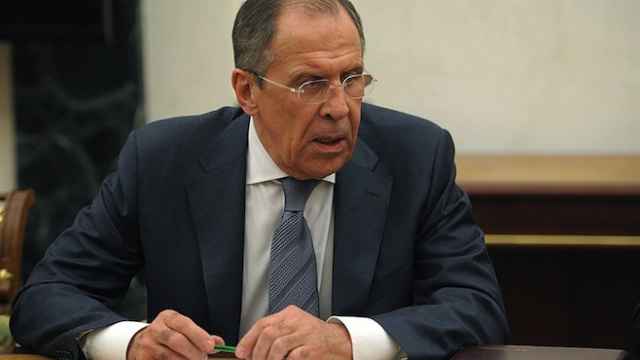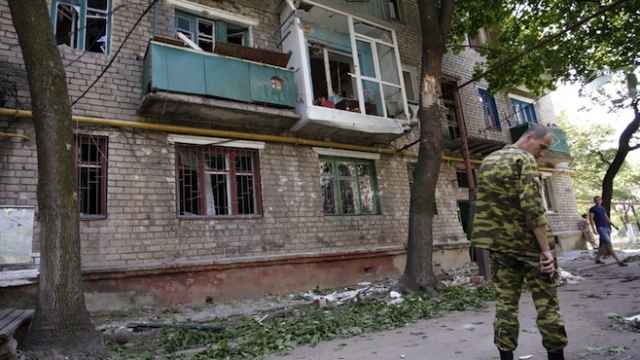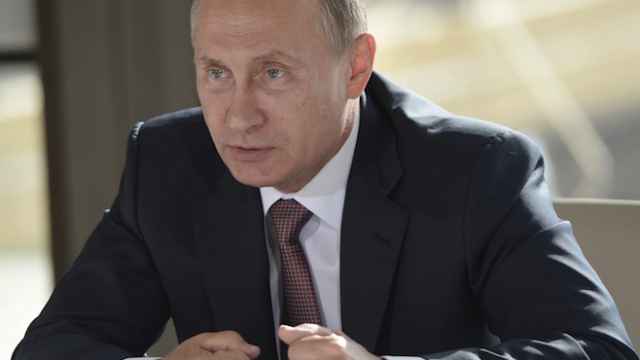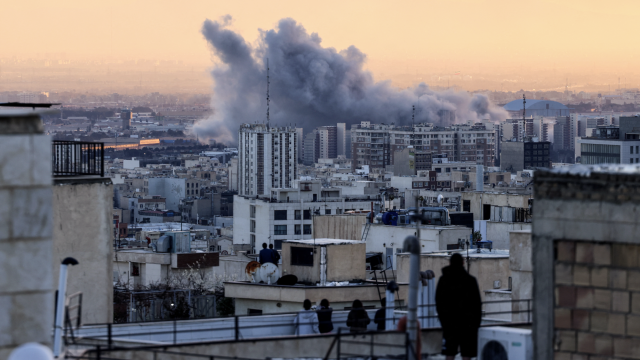Russia wants the leaders of Germany and France to put more pressure on Ukrainian President Petro Poroshenko to implement a February peace plan for eastern Ukraine, Russian Foreign Minister Sergei Lavrov said on Wednesday.
Poroshenko will meet German Chancellor Angela Merkel and French President Francois Hollande in Berlin on Monday in a bid to end a new wave of violence in eastern Ukraine between Russian-backed rebels and Ukraine's armed forces.
Kiev blames the rebels for violating a shaky truce. The West says Moscow has been driving the rebellion there since April last year, feeding it with serving Russian troops, arms, intelligence and funds. Moscow denies that.
"It is necessary in our view to mount additional pressure on Kiev to convince them that they have to implement the agreements and obligations agreed in Minsk," Lavrov said, referring to the peace deal brokered by Germany and France.
He was speaking during a visit to Crimea, the Black Sea peninsula annexed by Moscow from Kiev in March 2014, before unrest spread to eastern Ukraine.
"We expect that on Aug. 24 … Germany and France, who are the guarantors of the implementation of the Minsk agreement, will do everything to ensure it is carried out in full," Lavrov said.
Moscow says Kiev has failed to deliver on multiple provisions of the peace plan, signed in Minsk, Belarus, in February, and that the Ukrainian authorities must hold direct talks with representatives of the self-proclaimed rebel "republics" of Donetsk and Luhansk, which are backed by Russia.
The Ukrainian authorities have been unwilling to do that, negotiating with the rebels via a former Ukrainian president.
A Message from The Moscow Times:
Dear readers,
We are facing unprecedented challenges. Russia's Prosecutor General's Office has designated The Moscow Times as an "undesirable" organization, criminalizing our work and putting our staff at risk of prosecution. This follows our earlier unjust labeling as a "foreign agent."
These actions are direct attempts to silence independent journalism in Russia. The authorities claim our work "discredits the decisions of the Russian leadership." We see things differently: we strive to provide accurate, unbiased reporting on Russia.
We, the journalists of The Moscow Times, refuse to be silenced. But to continue our work, we need your help.
Your support, no matter how small, makes a world of difference. If you can, please support us monthly starting from just $2. It's quick to set up, and every contribution makes a significant impact.
By supporting The Moscow Times, you're defending open, independent journalism in the face of repression. Thank you for standing with us.
Remind me later.






